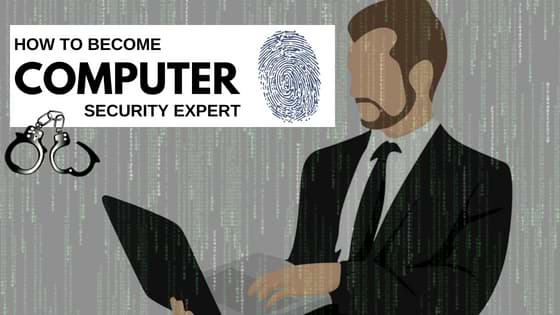More and more people are using the internet these days. This means that there is a broader area of victims for the identity thieves. Security is a major concern for each and every one. From malware to social engineering, cyber hackers can wreak havoc through a wide range of attacks.
Therefore, it is important for everyone nowadays to become a computer security expert. The following guide will provide you the necessary steps to become a cybersecurity expert.
Contents
1. Use a Secure Network
Always connect to a secure network. Secure your router by updating your Wi-Fi router to employ a unique username and a strong password for your network.
Never use public Wi-Fi at places such as hotels, airports, restaurants, etc. Wi-Fi connections at these places are not secure as they do not have data-encryption protections.
2. Get rid of Unnecessary Programs
Sometimes, additional programs come bundled with freeware programs downloaded from the internet without your permission. Most of the times, these additional programs are malicious programs which could highly affect your system’s performance and security.
Hence, check all the installed software on your computer. If you find any applications which you don’t know or use, remove them immediately (after researching about them).
3. Operate Under Least Privileges
In most cases, the malicious software can operate only under the rights of the logged-in user. Use a standard or restricted user account to minimize the impact of malware.
4. Secure your Web Browser
Web browsers installed on new PCs usually don’t have secure default settings. It is critical to secure your web browser so as to improve your computer’s security as more and more attackers are taking advantage of vulnerable web browsers.
Install a security add-on on your web browser to browse safely and securely on the internet.
5. Regularly Update Installed Software Programs
Almost all software vendors release updates of their software from time to time. The updates are released to fix vulnerabilities and flaws in the software.
Hence, it is advised to keep your software updated as intruders can exploit these bugs to deliver malware on your system.
6. Beware of Phishing Emails
Phishing is the process of stealing information from individuals by attacking them through malicious emails having malware and viruses.
The attacker sends a fake email which looks like a legitimate one. The attacker then tries to gain personal information of the people through this process. Be wary of such emails. Don’t open attachments or click on links unless you’re sure that they’re from legitimate senders.
7. Make Use of Passwords
The password is the most important security method to secure and save your data. It is the first step of security from any external attacks. That is why it is very important to create strong and complex passwords for all your online accounts, be it your email account or your online banking accounts.
- Create passwords which could not be easily guessed by a stranger.
- Use different passwords for different accounts
- Update your passwords frequently.
8. Enable and Configure a Firewall
The main objective of a firewall is to protect your PC and network from malicious threats. Malware is the primary threat to your computer. Various types of malware can be transmitted to your computer through email or over the internet and cause damage to your computer.
A firewall controls the flow of information between your system and the network. In other words, a firewall safeguards you against outsiders. Only the ones having a password will be able to access your data. This means that you’ll have full control over who you allow into your network.
9. Install and Use an Antivirus Software
Antivirus and anti-spyware programs can detect the presence of malicious software by looking for specific patterns in the files or memory of your PC.
One can secure their computer and data by using a good Antivirus program. Antivirus is one of the most important and effective way to keep your computer safeguarded from harmful software and malware attacks.
Always ensure relevant security measures to safeguard your data and become a computer security expert. The steps to manage and secure your computer involves understanding susceptible threats, applying suitable measures and continuously monitoring the activities.


